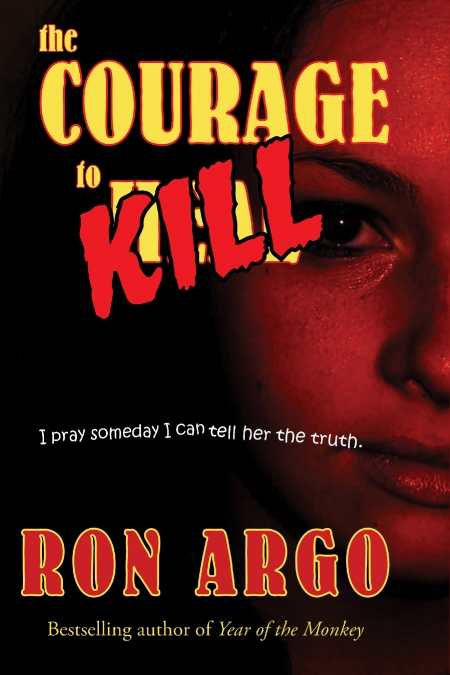The Courage to Kill
It’s not about the mystery, it’s about how it’s solved, in this novel filled with blood and sex.
Revenge—sparked by recovered memories of childhood sexual abuse and incest—drives a series of grisly murders set in what a lesbian character calls “the heart of LGBT land” in veteran author (and Vietnam veteran) Ron Argo’s The Courage to Kill. Although Argo gives away the key to the plot and declares the primary suspect’s innocence in the front matter, he manages to save at least a few twists and surprises for his readers. For Argo, it is not the mystery itself or even the solving of the mystery, but how it is resolved that matters.
Like starting a first date with a kiss just to get it out of the way, Argo removes any tension over the supposed guilt of the book’s accused killer before the reader gets to the title page. His hero, newspaperman Ray Myers, suspects that said accused murderer may be innocent, but Argo strings him along for 120 pages—fully half the book—before letting Myers know what readers learned before they even met Myers or the suspected killer, Janice Parrish.
Argo’s decision saps the murder theme of much of its mystery, but it does work on a different level. By telling the audience something his own hero doesn’t know but will eventually discover, Argo takes his readers into his confidence. While not made completely omniscient, the reader does come to feel that he or she is in on a secret that the author has not shared even with his protagonist.
The Courage to Kill has many disturbing parts among its forty-one chapters. Even the prologue is a flashback slaughter fest, and there are scenes—some acted out, some told in retrospect—of penetrative incest, sexual abuse of minors, and murders that are quite lurid. Except for one lovely character named Robin, the lesbian community is not portrayed flatteringly. A creepy group of bitter man-hating women, for example, is described as “unkempt and scruffy by choice, they seemed to flaunt deflated or defeated lives.” Some of them are patients of a suspiciously haughty psychologist who may or may not be the “psychopath” Argo mentions in the opener, but she could also be the one who pointed the killer down the path to bloody vengeance.
Argo, through Myers, shows his disdain for that character and her profession by having the newspaperman’s police pal, Detective Millard, quip, “I suspect a good many of your psychologists had rotten childhoods.” It is one of the many good lines in the book.
Argo writes with style and flair, and his pace never flags. The Courage to Kill is a fine murder mystery even if half of that mystery is revealed as soon as the reader cracks the cover. Then again, for Argo, the story is not about discovering the solution to that mystery, but about how that mystery is solved.
Reviewed by
Mark McLaughlin
Disclosure: This article is not an endorsement, but a review. The publisher of this book provided free copies of the book to have their book reviewed by a professional reviewer. No fee was paid by the publisher for this review. Foreword Reviews only recommends books that we love. Foreword Magazine, Inc. is disclosing this in accordance with the Federal Trade Commission’s 16 CFR, Part 255.

